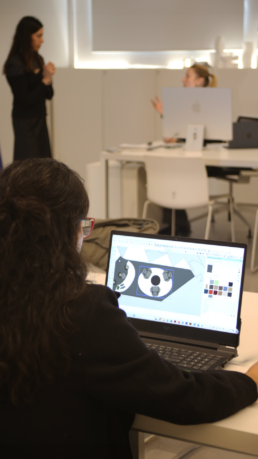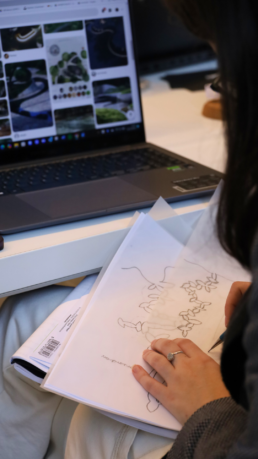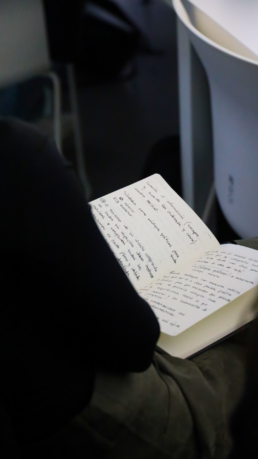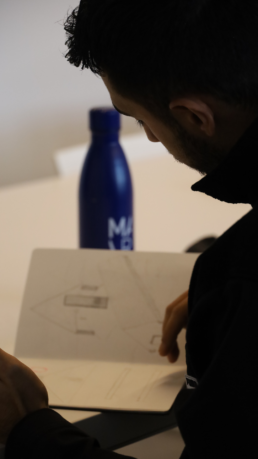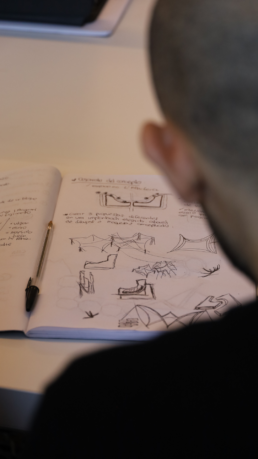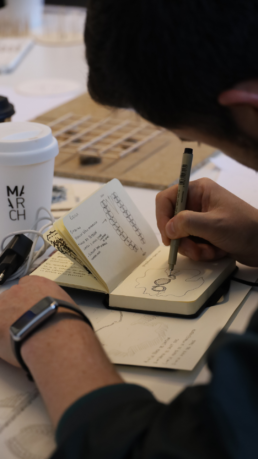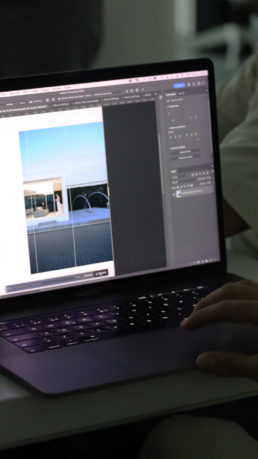What does the MArch Postgraduate Program in Applied Architecture include?
DATE
22.01.2025
The MArch Postgraduate Program in Applied Architecture offers an advanced educational approach aimed at professionals who wish to specialize in the integration of creative, technical, and communication processes within architecture. This program is designed for those seeking to take their architectural practice beyond theoretical design by incorporating essential skills that enable them to transform their ideas into real projects, from conception to effective construction. With a curriculum structured around three core modules, MArch addresses architecture from a multidisciplinary perspective, where communication, research, and construction become essential pillars of professional training.
Module 01_Communicate focuses on architects’ ability to effectively convey their ideas. From the importance of oral communication, through public speaking sessions led by César Gómez-Mora, to the visual representation of architecture through photoshoots, students develop key skills for presenting their projects in an impactful and professional manner. Additionally, this module emphasizes the relevance of Community Management as a strategic tool in architecture. Guided by Communication Director Sara Atienza, participants learn to create communication strategies tailored to their target audience, enhancing their presence in the digital world and in specialized media. This way, students acquire a comprehensive view of communication, encompassing both direct interaction and the media presence of their works.
Module 02_Research focuses on materializing ideas, an essential aspect for any architect. Through the Hacer para pensar (Making to Think) workshop, led by Fran Silvestre, students experience the importance of experimentation and prototyping as a means to solidify architectural concepts. This module continues with exercises such as From Concept to Project and Concept Development, where participants design spaces in unique environments, tackling challenges of contextual, functional, and aesthetic integration. These activities foster critical thinking and the ability to address complex design problems, using research as the foundation for architectural creation.
Finally, Module 03_Build provides a comprehensive vision of how an architectural project moves from concept to reality. Under the supervision of Estefanía Soriano, students learn about the different phases of drafting an architectural project, delving into the technical and regulatory aspects necessary for its proper execution. Additionally, in collaboration with technical architect Enrique Alario, students explore construction solutions and on-site decision-making processes to efficiently bring a project to life. This module enables students to consolidate their ability to manage projects from conception to construction, equipping them with the tools needed to tackle the practical challenges of execution on-site.
Following these three modules, students complete their training with a fourth module, the Final Project, which represents a key opportunity for them to materialize their own idea, integrating all the knowledge acquired throughout the course. This module has a practical focus, where each student develops their own project, applying the skills gained in communication, research, and construction. Through this exercise, students not only deepen their creativity but also refine their professional skills, expanding their ability to tackle projects in various contexts and scales. The admission process for the 2025–2026 course is currently open to applicants.
MArch Valencia. Arquitectura y Diseño
© 2025 MArch Valencia. Arquitectura y Diseño
Privacy policy | Cookies policy | Terms of use
